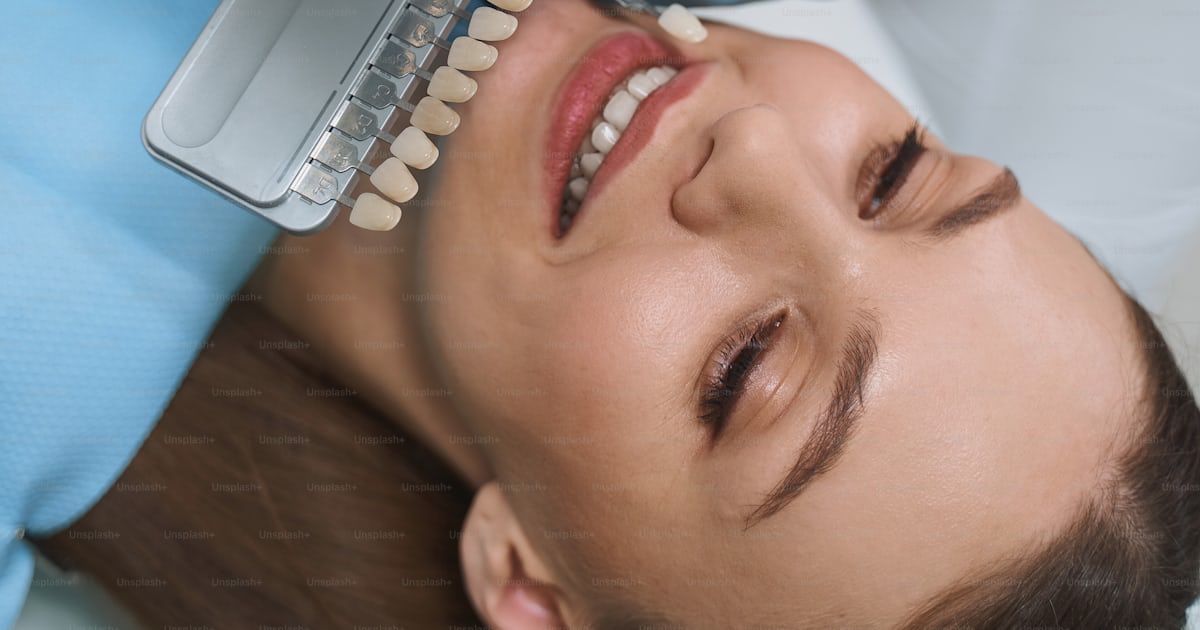Dental Implants Zanesville OH - Mono Dental Implant Pataskala OH
Dental Implants Zanesville OH - Mono Dental Implant Pataskala OH
Blog Article
Dental Implant Centerburg OH - Oral Surgeon - Oral Surgery Office
When figuring out what sort of anesthesia is used for dental implants, it becomes important to explore numerous options out there to patients. The selection of anesthesia can considerably influence the comfort of the procedure, the general expertise, and the speed of recovery. Dental Implant Centerburg OH.
Local anesthesia is the most generally used sort for dental implant surgeries. In this technique, an anesthetic agent is injected close to the surgical site. Local anesthesia effectively numbs the focused area, allowing the oral surgeon or dentist to carry out the process with minimal pain to the affected person. It is beneficial because sufferers remain fully awake and conscious all through the process, fostering a way of control.
Dental Implant Condit OH - Dental Care
Sedation dentistry presents another approach for many who may really feel anxious about the process. Sedation can vary from gentle to deep, permitting sufferers to loosen up whereas their implants are placed. Different levels of sedation can be achieved via oral sedatives, nitrous oxide, or intravenous methods. The level of relaxation can be tailored to the specific wants or anxiousness ranges of the affected person.
Nitrous oxide, generally known as laughing gasoline, is a well-liked alternative for dental procedures, including implants. This form of sedation works quickly, permitting patients to really feel relaxed and euphoric. Administration is handy, because the gas is inhaled by way of a masks positioned over the nose. Patients can sometimes resume regular activities shortly after the procedure, making nitrous oxide a favorite among each dentists and sufferers.
Another choice is oral sedation. This methodology involves taking a prescribed sedative earlier than the appointment. Patients often really feel sleepy and less aware of their surroundings whereas still with the power to talk with their dental staff if essential. While oral sedation is effective, its onset and duration can vary from person to person, so dentists must evaluate particular person needs rigorously.
Intravenous (IV) sedation offers deeper levels of sedation, perfect for longer or more complicated procedures. This method permits for fast adjustment of sedation ranges, because the anesthetic is administered immediately into the bloodstream. Patients in this state may feel extremely relaxed and may not remember the process afterward. IV sedation usually requires a extra in depth recovery period compared to local anesthesia alone.
Dental Implant Alexandria OH - Dental Implants
General anesthesia, though usually reserved for more invasive surgical procedures, may also be considered for dental implants in particular situations. This kind of anesthesia induces a state of full unconsciousness, requiring close monitoring by an anesthesiologist. General anesthesia is appropriate for patients with extreme nervousness, those who have issue sitting still for prolonged periods, or when a quantity of procedures are performed simultaneously.
The number of anesthesia might also depend upon the affected person's medical history and any underlying medical conditions. Some illnesses may increase the chance of problems throughout anesthesia. Detailed discussions between the patient and the dental staff can lead to a custom-made anesthetic plan that ensures safety whereas enhancing comfort.
Many patients express concern concerning the unwanted effects associated with anesthesia. While side effects can vary based mostly on the type used, most local anesthetics present minimal risks. Common considerations embody temporary numbness and swelling close to the injection web site. For those who go for sedation, unwanted side effects might embody drowsiness, dizziness, or nausea.
Recovery time also performs a role in the alternative of anesthesia. Local anesthesia typically allows for a faster recovery, enabling sufferers to renew normal actions inside hours. Sedation methods might require extra time for the medicine to put on off, necessitating preparations for transportation post-procedure.
Dental Implant Johnstown OH - Oral Surgery

The importance of communication between the affected person and the dental practitioner cannot be overstated. Sharing issues and preferences permits for a tailored anesthetic approach. A thorough analysis helps to establish the most appropriate kind of anesthesia to ensure both consolation and effectiveness in the course of the dental implant procedure.
In addition to consolation and safety, the general success of dental implants can be influenced by the choice of anesthesia (Dental Implant Granville OH). The effects of tension on the body can complicate surgical procedures and lengthen recovery occasions. Therefore, a proper anesthetic plan plays a vital role in not solely immediate comfort but additionally the long-term success of official source the dental implants.
Dental Implant Sunbury OH - Oral Surgeon - Oral Surgery Office
Patients should be prepared to debate their medical historical past, anxiousness levels, and personal preferences when consulting a dentist for dental implants. This open dialogue allows the practitioner to create an anesthetic technique that fits the person whereas ensuring the procedure runs smoothly and successfully.

The quest for a pain-free dental implant procedure could be daunting for many. The various forms of anesthesia create choices that can fit particular person needs, existence, and luxury ranges. The right choice of anesthesia can flip a doubtlessly tense dental visit right into a more manageable experience.
Dental Implant Granville OH - Oral Surgeon - Oral Surgery Office
In conclusion, understanding what sort of anesthesia is used for dental implants is essential for patients making ready for the procedure. From native to general anesthesia, every method has its advantages and considerations. With quite a lot of choices out there, sufferers can work intently with their dental team to discover out the best approach, enhancing not only consolation but in addition Dentist Dr Walsh the chance of a successful outcome. Ultimately, the number of anesthesia directly impacts both the expertise in the course of the procedure and the general satisfaction with dental implants.
- Local anesthesia is predominantly used for dental implants, providing focused numbing to the surgical site while permitting the affected person to remain fully acutely aware.
- Common native anesthetics include lidocaine, articaine, and mepivacaine, each chosen for his or her effectiveness and length of action.
- Sedation dentistry may also be employed for patients with anxiety, typically using reasonable sedation techniques like nitrous oxide or oral sedatives.
- General anesthesia can be an choice for complicated circumstances or in patients with severe nervousness or special wants, ensuring a completely unconscious state.
- The selection of anesthesia depends on the patient's medical historical past, level of anxiety, and complexity of the implant process.
- During the process, monitoring of important indicators ensures the patient's safety and luxury levels are maintained.
- Post-surgery, sufferers are sometimes given instructions relating to pain management, which may embrace over-the-counter pain relievers alongside instructed dosages of native anesthesia.
- The use of anesthetic brokers can range primarily based on particular person responses, necessitating a tailored approach from the dental professional.
- Some dental practices could provide digital actuality or distraction strategies to assist sufferers manage anxiousness alongside anesthesia choices.undefinedWhat sort of anesthesia is used for dental implants?
What is the commonest sort of anesthesia used for dental implants?undefinedThe commonest type of anesthesia for dental implants is local anesthesia, specifically lidocaine. This numbs the surgical area to minimize pain through the procedure.
Can I request sedation for my dental implant surgery?undefinedYes, many dentists offer sedation options, corresponding to oral sedation or nitrous oxide, for sufferers who really feel anxious or choose a more relaxed experience during dental implant surgery.
Dental Implant Hartford OH - Dental Hygienist near Ohio

Will I be awake in the course of the dental implant procedure?undefinedIf native anesthesia is used, you'll be awake but numb in the remedy space. If sedation is chosen, you could be in a lightweight sleep and never fully aware of the process.
How long does the anesthesia last in the course of the procedure?undefinedThe effects of local anesthesia typically last for 1 to 3 hours, depending on the particular treatment used. However, the duration can range based mostly on particular person elements.
Dental Implant Galena OH - Dental Care

Are there any side effects of dental anesthesia?undefinedPossible side effects can include short-term numbness, swelling, bruising, and, in rare instances, allergic reactions. It's essential to debate any concerns with your dentist beforehand.
Can I eat or drink after receiving anesthesia for my dental implant?undefinedIt's greatest to avoid consuming or drinking until the numbness has completely worn off to prevent biting your tongue or cheek. Follow your dentist’s particular post-operative directions for the most effective results.
How is anesthesia administered for dental implants?undefinedLocal anesthesia is often administered via a small injection instantly into the gum tissue. Sedation options might contain inhalation or oral treatment to help you relax before the process.
Dental Implant Columbus OH - Dentist near Ohio
Do I want someone to drive me residence after the procedure?undefinedIf you’ve received sedation, it’s recommended to have somebody drive you home, as you could really feel groggy or disoriented. Local anesthesia alone usually doesn't require assistance.
What if I really have a fear of needles?undefinedIf you've a fear of needles, discuss this with your dentist. They can provide strategies to help ease your anxiety, such as utilizing topical numbing brokers earlier than the injection.
Report this page